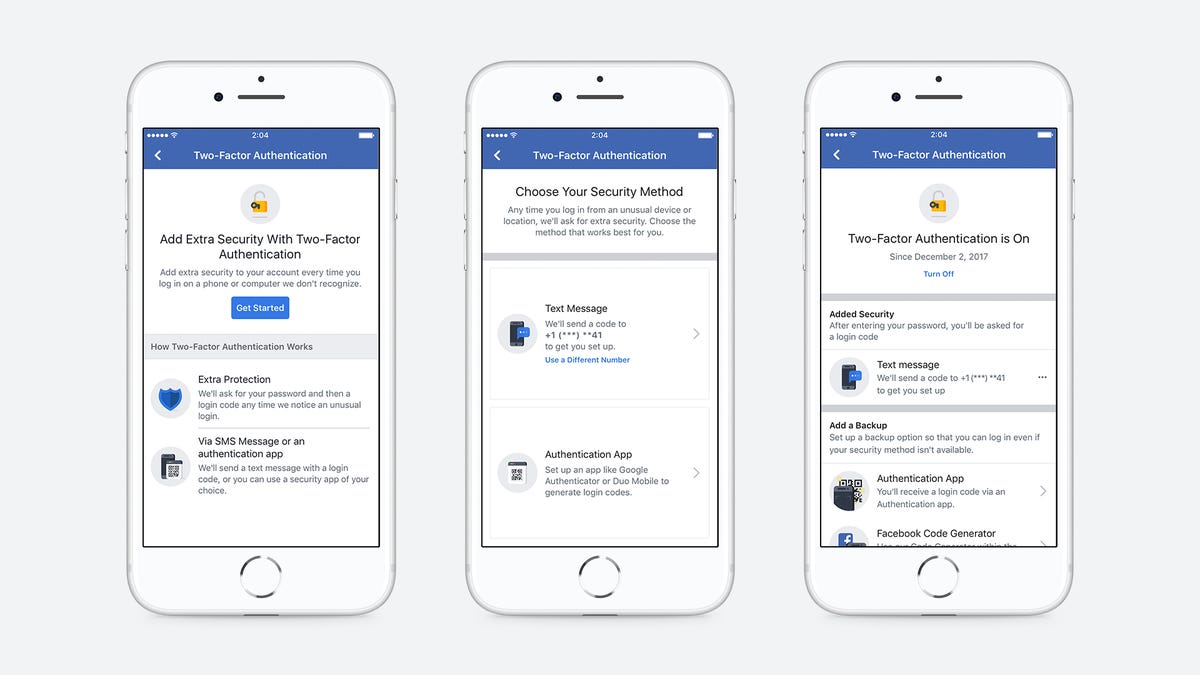Facebook takes some of the pain out of safer logins
You should use two-factor authentication whenever it's available.

Screenshots show what Facebook's new process for setting up two-factor authentication looks like.
Facebook announced Wednesday it would make a security feature called two-factor authentication easier to set up.
The process will become simpler, and users who don't have phone numbers can now sign up for it too, Scott Dickens, a product manager at Facebook, said in a blog post.
Two-factor authentication adds an extra step to your login process when a website has reason to think someone else could be trying to get into your account. When a bank, email or social media site sees that you're logging in from a new location, for example, they can require you to enter in a one-time code to prove that it's you.
If Facebook's move encourages more users to enable the feature, it'll be good news. Security experts say you shouldn't rely on passwords alone to keep your online accounts safe, but the process for setting two-authentication can be cumbersome. That makes something that already introduces a little inconvenience into your life even less convenient to use.
Facebook lets you choose to have the one-time code sent by SMS (text message) to your phone. If you can avoid it, don't do that, according to guidelines from the National Institute of Standards and Technology. Instead, use an authenticator app, which is more secure. Facebook lets users select the Google Authenticator app as well as the Duo Mobile app, which can both show users one-time codes linked to each of their specific accounts.
It might seem like a lot of fuss, but passwords get hacked and posted on cybercrime forums all the time. Experts say we can't and shouldn't rely on them to keep our accounts locked down.
"Two-factor authentication is an industry best practice for providing additional account security," Dickens wrote.
In other words, this is the best solution available at the moment.
Security: Stay up-to-date on the latest in breaches, hacks, fixes and all those cybersecurity issues that keep you up at night.
Cambridge Analytica: Everything you need to know about Facebook's data mining scandal.

